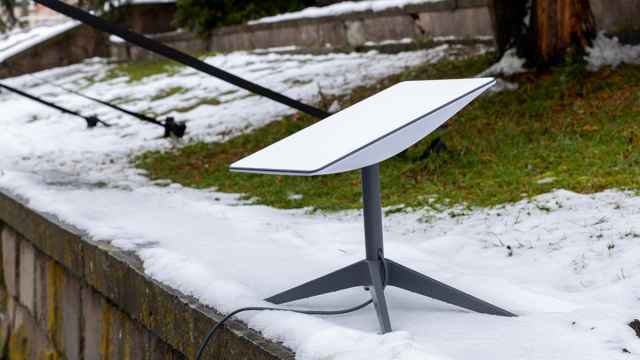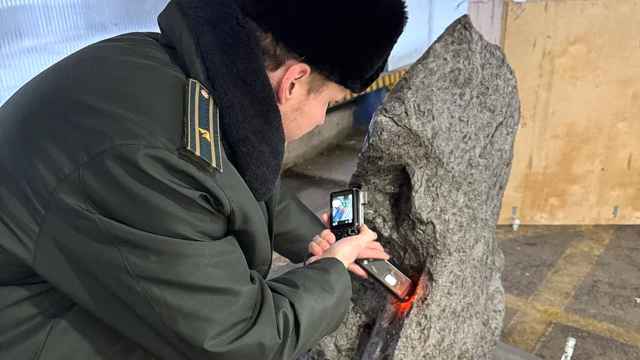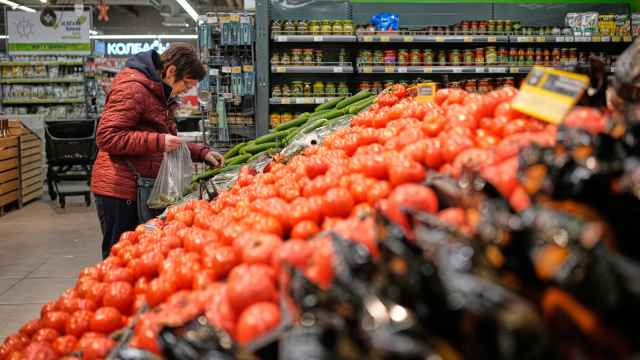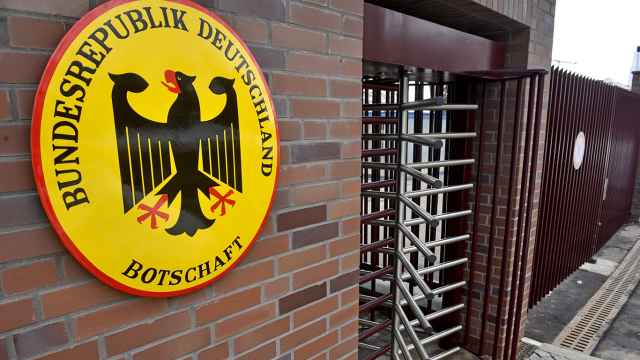Ukraine has warned it could retaliate for Russia's new recycling fee on the import of cars.
The spat is the first disagreement between the two World Trade Organization members after Russia joined the group last month.
The car recycling fee took effect on Sept. 1 following a reduction in Russia's import duties upon accession to the WTO. It is intended to protect the domestic auto industry.
"If we also introduce some recycling fee, then the Russian cars that come to our market will cost $1,000 more and Ukrainians will no longer buy them," Ukraine's Prime Minister Mykola Azarov said, Interfax reported.
He made the statement during a lecture at the Kiev National University of Construction and Architecture on Monday.
Ukraine's Cabinet will consider the issue Wednesday. Environment and Natural Resources Minister Eduard Stavitsky said he had orders to come up with proposals.
The fee hurt Ukrainian manufacturers of cars, buses and trucks, which cumulatively export about 40 percent of their output to Russia.
The move also irked the European Union, whose primary export to Russia is vehicles.
If Kiev goes through with its threat, it will be painful for Russia because Ukraine is the No. 1 car export market for the country's native models and cars that foreign auto giants assemble in the country.
Russia exported to Ukraine $453 million worth of such vehicles as Lada, Hyundai, Kia, Volkswagen and Renault last year.
Igor Burenkov, a spokesman for AvtoVAZ, the producer of Lada cars, declined comment on Ukraine's warning about imports from Russia.
Russian car imports from Ukraine were worth $344 million last year, and included Chinese models assembled at Ukraine's auto plants. Russia also imported Ukrainian-made Bogdan buses.
Azarov said the Russian recycling fee made cars from Ukraine go up in price at least $600, while the increase for trucks will be around $20,000.
Earlier, Nazarov also mentioned a need to respond to the Russian measure on his Facebook page.
"Our actions will be absolutely equivalent to the actions of our Russian partners," he wrote Friday.
He also said at the time that the Ukrainian government would prepare a bilateral agreement with Russia to mutually cancel the recycling fees.
Ukraine's government was hoping earlier last week that Russia would waive the fee for its trade with Ukraine. Azarov said Aug. 27 that Russian President Vladimir Putin had discussed the issue with his Ukrainian counterpart Viktor Yanukovich a few days before.
"There have been talks with the Russian leadership and we were promised that the subject will undergo a comprehensive study," Azarov said. "Most likely, this measure will not affect Ukraine."
Russia has long wooed Ukraine to join its customs union with Belarus and Kazakhstan, but Kiev has opted for greater integration with the European Union.
Russia and Ukraine have also had other trade disputes. Most recently, they waged a "cheese war" earlier this year, when Russia banned the import of some Ukrainian cheese, saying it was substandard because it contained palm oil instead of milk fats.
Related articles:
A Message from The Moscow Times:
Dear readers,
We are facing unprecedented challenges. Russia's Prosecutor General's Office has designated The Moscow Times as an "undesirable" organization, criminalizing our work and putting our staff at risk of prosecution. This follows our earlier unjust labeling as a "foreign agent."
These actions are direct attempts to silence independent journalism in Russia. The authorities claim our work "discredits the decisions of the Russian leadership." We see things differently: we strive to provide accurate, unbiased reporting on Russia.
We, the journalists of The Moscow Times, refuse to be silenced. But to continue our work, we need your help.
Your support, no matter how small, makes a world of difference. If you can, please support us monthly starting from just $2. It's quick to set up, and every contribution makes a significant impact.
By supporting The Moscow Times, you're defending open, independent journalism in the face of repression. Thank you for standing with us.
Remind me later.






